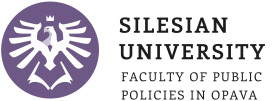Central European Papers 2014, 2(1):132-149 | DOI: 10.25142/cep.2014.009
The Vanishing Soviet Utopia in Hungary in the Light of de-Stalinization - Soviet Union as the Land of Modernization in the Hungarian Press 1950-1958
- Politikatörténeti Intézet, Budapest, Institute of Political History, Alkotmány u. 2, 1054 Budapest, Hungary, takrobi@yahoo.com
The Stalinist Soviet Union integrated Hungary - and the nations of Central Europe - by 1949 forcing the Soviet-style political dictatorship and economic system to these societies and emphasizing the importance of the Soviet example in the modernization of all spheres from automation through cotton harvesting to public libraries. Stalinized publicity was saturated with information on the Soviet Union. After March 1953, it became clear that a different, more effective Soviet Union propaganda was necessary; however the first delegation of writers and journalists could only enter the Soviet Union in late 1955. December 1955 was the exact date of the launching of the first organized Hungarian tourist groups to Kiev, Leningrad and Moscow as well - after the 'years of delegations'. The revolution of 1956 brought another twist in this regard and efforts were made to shape a renewed friendly image of Khrushchev's empire.
Emphasis within modernization changed in this period - but the main goal of modernizing and overtaking the 'capitalist world' did not. The paper strives to reveal and analyse these changing attitudes and motives in depicting the Soviet Union as a modern empire. It thrives to explore the different threads in the de-Stalinization process - what changes stemmed from changing politics and policies, technical development and where we can grab the de-Stalinization of journalism and publicity.
Keywords: Utopia, modernization, Stalinization, de-Stalinization, Soviet Union, press, 1950s
Published: March 1, 2014 Show citation
| ACS | AIP | APA | ASA | Harvard | Chicago | Chicago Notes | IEEE | ISO690 | MLA | NLM | Turabian | Vancouver |
References
- Magyar Nemzeti Levéltár Országos Levéltára (MNL-OL) (The State Archives of the Hungarian National Archives), f. 276, Magyar Dolgozók Pártja Központi Szervei - Central Authorities of the Hungarian Working People's Party (1946-1958).
- Népszabadság, 1957, Year 2, No. 147, 206, 262.
- Népszabadság, 1958, Year 16, No. 133, 183, 268, 308.
 Go to original source...
Go to original source... - Népszabadság, 1959, Year 17, No. 195.
 Go to original source...
Go to original source... - Népszabadság, 1982, Year 40, No. 113.
 Go to original source...
Go to original source... - Magyar Nemzet, 1950, Year 6, No. 148.
- Magyar Nemzet, 1953, Year 9, No. 192, 226.
- Magyar Nemzet, 1957, Year 13, No. 16.
- Magyar Nemzet, 1958, Year 14, No. 110, 137.
- Szabad Nép, 1950, Year 8, No. 16, 28, 102, 196, 201, 205, 303.
- Szabad Nép, 1951, Year 9, No. 12, 13, 15, 112, 191, 195, 198, 205.
- Szabad Nép, 1952, Year 10, No. 28, 119, 127, 158, 220.
 Go to original source...
Go to original source... - Szabad Nép, 1953, Year 11, No. 279.
- Szabad Nép, 1954, Year 12, No. 167, 192, 208, 343.
- Szabad Nép, 1955, Year 13, No. 5, 113, 162, 320, 356.
- Szabad Nép, 1956, Year 14, No. 1, 20, 21, 121, 126, 136.
 Go to original source...
Go to original source... - Statisztikai Évkönyv 1957, 1958.
- BALOGH, Elemér: A vallás a Párt és az állam szempontjából, in: Társadalmi Szemle, 5, 1950, 7-8, 624-626.
- BENCSIK, Péter - NAGY, György: A magyar úti okmányok története 1945-1989, Budapest 2003.
- BITTNER, Stephen V.: The Many Lives of Khrushchev's Thaw: experience and memory in Moscow's Arbat, Ithaca 2008.
- EDGAR, Adrienne Lynn: Tribal Nation: The Making of Soviet Turkmenistan, Princeton 2004.
- GARAMVÖLGYI, Károly: A mezőgazdaság irányításának új vonásai a Szovjetunióban, in: Társadalmi Szemle, 13, 1958, 7-8, 22.
- GORSUCH, Anne E.: Time Travellers. Soviet Tourists to Eastern Europe, in: Turizm. The Russian and East European Tourist Under Capitalism and Socialism, GORSUCH, Anne E. - KOENKER, Diane P. (eds.), Ithaca 2006, 205-226.
 Go to original source...
Go to original source... - INGLEHART, Ronald: Modernization and Postmodernization. Cultural, Economic and Political Change in 43 Societies, Princeton 1997.
 Go to original source...
Go to original source... - PARKS, J. D.: Culture, Conflict and Coexistence. American-Soviet Cultural Relations, 1917-1958, Jefferson and London 1983.
- ROTH-EY, Kristin: Finding a Home for Television in the USSR 1950-1970, in: Slavic Review, 66, 2007, 2, 278-282.
 Go to original source...
Go to original source... - SIMÁNDI, Irén: Magyarország a Szabad Európa Rádió hullámhosszán 1951-1956, Budapest 2005.
- SLEZKINE, Yuri: The USSR as a Communal Apartment, or How a Socialist State Promoted Ethnic Particularism, in: Slavic Review, 53, 1994, 2, 414-452.
 Go to original source...
Go to original source... - SMITH, Mark B.: Khrushchev's promise to eliminate the urban housing shortage: rights, rationality and the communist future, in: Soviet State and Society under Nikita Khrushchev, ILIC, Melanie - SMITH, Jeremy (eds.), New York 2009, 29-33.
- TAKÁCS, Róbert: Újságírói szerepfelfogások 1954 és 1956 között Magyarországon, in: Médiakutató, 7, 2006, Winter, 7-24.
- TAUBMANN, William: Khrushchev: The Man and his Era, New York 2003.
- VARGA, György: S. Lilley: Az automatizálás és a társadalom, in: Közgazdasági Szemle, 5, 1958, 11, 1207-1209.
- VARGA, Jenő: A jelenkori kapitalizmus és a szocializmus fejlődésének tendenciáiról, in: Társadalmi Szemle, 12, 1957, 10, 7-24.
- WOLFE, Thomas C.: Governing Soviet Journalism. The Press and the Socialist Person After Stalin, Bloomington - Indianapolis 2005.
This is an open access article distributed under the terms of the Creative Commons Attribution 4.0 International License (CC BY 4.0), which permits use, distribution, and reproduction in any medium, provided the original publication is properly cited. No use, distribution or reproduction is permitted which does not comply with these terms.



